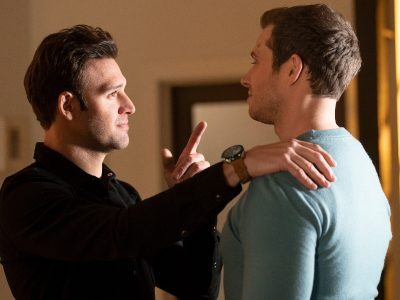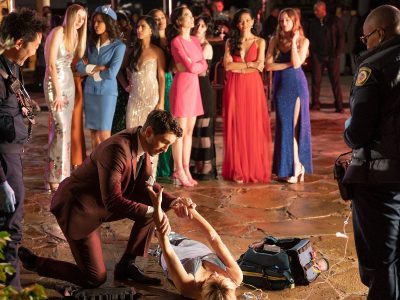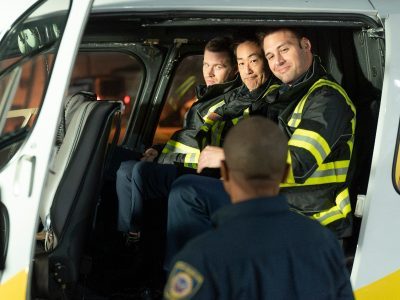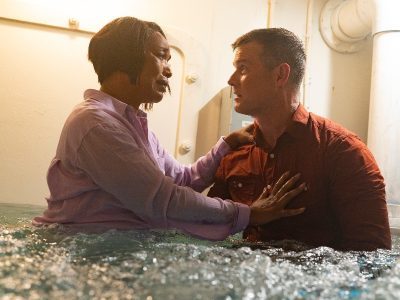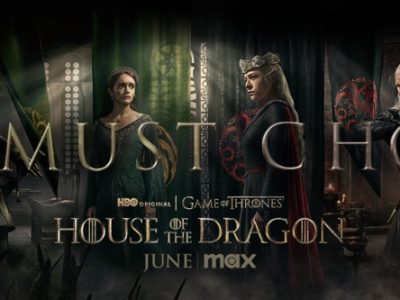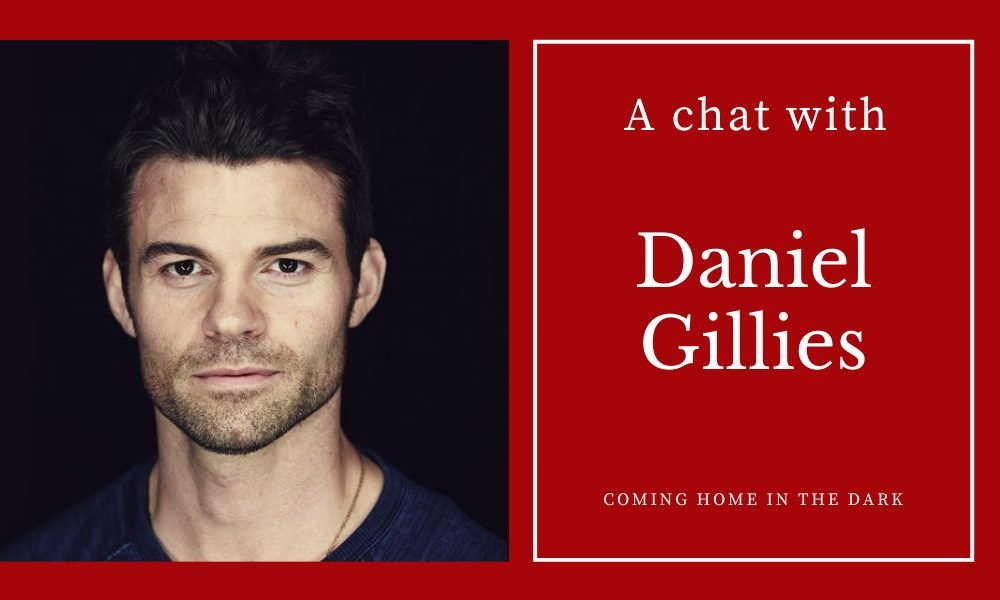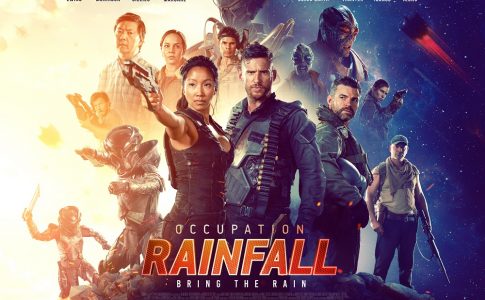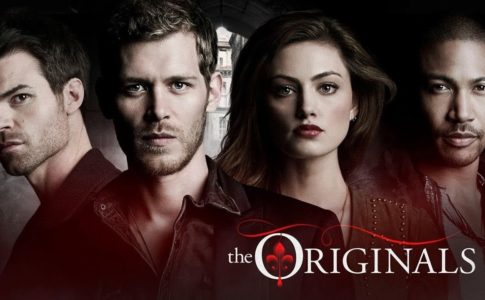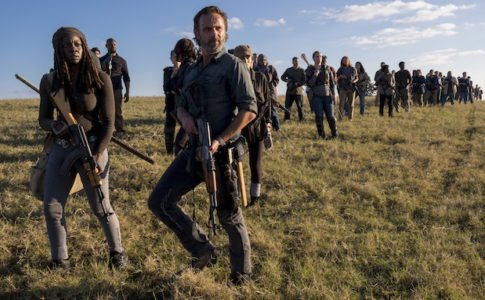A Chat with Daniel Gillies
Let’s celebrate the release of Coming Home In The Dark with an interview, shall we? We had the opportunity to chat with the one and only Daniel Gillies who portrayed the character Mandrake in Coming Home In The Dark, which is out in selected theaters and VOD all over the US now. What are we waiting for? Let’s go! Scroll down to see what it’s all about and what Gillies had to say!
Coming Home In The Dark
FN: Your new movie “Coming Home in the Dark” has already premiered in some countries. Can you tell us a bit more about the story?
DG: Not really no. It’s very difficult to talk about without destroying the movie. I can give you the basic premise which is that there’s a family of New Zealanders and they’re out enjoying the beautiful, exquisite, scenic panorama of New Zealand and they are descended upon by these two questionable looking fellows who carry with them a quality of danger. And the movie is sort of about what happens with everything after this encounter with this family and them. It’s a very difficult film to talk about. I wish I could talk in more depth and not go around it. It’s hard, you know. There’s always the danger that you can ruin the film.
FN: In “Coming Home in the Dark” your character, Mandrake, once mentions how just a little music can lighten the mood, so which 3 songs do you think would be on Mandrake’s Spotify playlist?
DG: Well I made music for Mandrake I think. I made a list of music that Mandrake liked. It’s not necessarily music that I like. I’ll look it up on my phone. Y’know, weird songs. Songs that I thought he’d love. There’s a Johnny Cash song in here called Rusty Cage. He likes Guns ‘n Roses, Welcome to the Jungle. But he also likes strange songs. There’s a band called Roxette, like from the 90s, I think they were Swedish or something. He likes music that makes him feel empowered. And there’s a song called The Look by Roxette. Walk like an Egyptian by The Bangles. He’s got a strange taste. But there’s a lot of Guns ‘N’ Roses in here. And, um, actually there’s a song by Chopin in here. One of the Nocturnes. He actually will swing to Classical. I think possibly because he fancies himself a Renaissance Man.
FN: If you had the opportunity to meet Mandrake, what would you like to tell him?
DG: Well I did meet Mandrake, y’know, and I tried to tell him the whole time I was playing him that I had compassion for him.
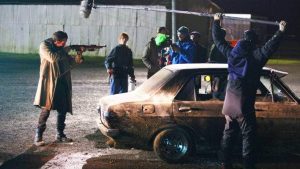
Acting
FN: Which of the actors you’ve played with helped you grow the most, both personally and professionally?
DG: I typically learn the most from people who are not in our business. I have never been wowed by an actor on set ever. I’ve never thought ‘Oh my God, how is he or she doing that?’. Or I’ve never felt intimidated by another actor. That’s making me sound competitive but it’s not. The kinds of people who would inspire me are the kinds who sort of scare me a little, or would. I imagine. Musicians I find far more interesting, y’know, than actors. I think they have a much more direct communication with something kind of holy, y’know? Our art’s kind of vulgar. We create facsimiles and, kind of, pencil sketches of humanity. But I feel like musicians are far more directly in communion with whatever it is that’s special about being a person.
I don’t remember ever feeling, like, ‘Man I learned so much from that actor.’ I definitely know that in my earliest days of theatre I met actors who had influence then. That certainly I was seduced into the idea of what an actor could be. Cos sometimes when you are younger, when I was doing theatre in the early days I met actors who were doing TV and movies and I thought that was exciting, and I thought that made them sort of special somehow. But I’m not sure that’s learning that endures, y’know? Cos it feels to me like I was a little bit delusional. I can’t say I’ve ever really worked with an actor that I’ve learned so much from.
I’ve learned a lot from the characters I’ve played. I’ve learned a lot from devoting myself to them. I would say that, in doing Broken Kingdom I learned a lot from those actors from directing them. Directing them is very different and I learned a tremendous amount. I learn from actors every time I direct, and I learn from every single one. Because they are teaching you how to be a director. They are teaching you all the time. It’s not about your dominance or their subjugation, it’s about your creating an environment where they feel safe to be courageously artistic.
FN: You often play characters who end up ‘dead’. Is that part of your contract now? Are you getting used to it?
DG: Yeah, I don’t know why that is. Maybe I should be reading more deeply into that as some, perhaps there’s something there. I don’t know why. Perhaps writers and people who cast me just like to see me die. It doesn’t phase me. My only fear is that I’ll die the same way twice. I always wanna find a new way into death. There’s guys like Sean Bean from Game of Thrones and he’s died I don’t know how many dozen times and I feel like I’m in good company there, in terms of being one of those actors that died.
FN: What sort of acting roles will you be seeking in the future?
DG: Anything that is challenging. That makes me feel like I’m gonna grow as an individual. But you know you can say all of these things, and sound pretty as you say them, but the truth is you sort of need to survive too. Like, this is Covid and I’m lucky that I’m a working actor and sometimes you take the job that isn’t necessarily your dream job. It isn’t what you’re seeking. It’s because you know that you’re gonna be able to pay the bills, and that your kids can go to the school that you’re putting them in or that you can pay the veterinary bills, that you can have a roof over your head.
You need to survive, so it’s not about what you are drawn to. Those “what are you drawn to?” questions are applicable to, like, maybe a hundred actors in the world. In the entire world. And they mostly get to pick and choose. The rest of us kind of don’t, even though we pretend we do. We don’t. We get a little lucky sometimes. And look, that doesn’t mean we can’t choose what comes along.
There are things that come along, like Coming Home in the Dark, that’s very special when you have that opportunity because it gives you a chance to show what you knew you could do. Our business is just so grotesque, it’s not a meritocracy. It’s not about who’s best for the role. Truly unlike any other. It’s not like most things in life really where if you are an applicant and you’re kind of the best you’ve got a good chance you’re gonna get it. That’s not the way it works in acting. Acting works in the way that ‘Oh you were in that big show? You were in Stranger Things? Oh well then you must be good.’. ‘You were in that thing? Oh, you must be good.’ You know, like ‘When you were in Game of Thrones’. I mean, Game of Thrones is littered with terrible actors. It’s also got some very very good actors in there. But if you were on that show the chances are that you’re going to get a lot of employment, especially if you were on for more than three or four episodes. That doesn’t seem to matter. It’s about the cache of a show, what network it was on. It’s a very dishonest business.
But the things I look forward to the most, the roles I look forward to the most are probably the things I would write for myself, the things that I can create. Cos seldom do you see roles and projects where somebody’s actually written something that’s challenging to social ideas. And I just feel like we’ve become so lazy with it now. People just want to turn off and escape and what they want to escape into is something that doesn’t challenge them. And we are calling a whole lot of things ‘good TV’ which are bad TV and it’s worse with movies. With movies we’re saying that a whole lot of movies are wonderful that are truly terrible. And we’ve just become emotionally disconnected and, sort of, psychologically lazy. And I sound incredibly cynical, but it’s cos that’s what I see.

Getting to know Gillies
FN: What’s one piece of advice that someone has given you that you still live up to today?
DG: So, many years ago I had a boss, he actually gave me a job in a clothing store in a town called Milford in New Zealand, which was just out of Auckland, and I worked for him in Hamilton as well and he gave me a piece of advice where he said ‘whatever you do in life, criticism is fine. It’s okay to listen to any and all criticism.’ but he goes ‘but always let the highest criticism of your own work be yours’. Make certain that the greatest piece of criticism you receive, no matter how many critics there are, and they could be saying wonderful things, and they could be saying terrible things, let the most articulate and insightful piece of criticism come from you.”
FN: What was the last thing that made you smile?
DG: My kids always make me smile. I think we were just playing at lunch, I can’t remember, what happened that made me smile? I don’t remember smiling, I don’t think about smiling. But I know I am smiling when I’m with them. It was just at lunch with my kids and they were trying to position themselves around the dog I think, in such a way that it was like a family portrait. And the photo was truly terrible, and he was so big… I don’t know. We were also practising tricks with him on the kitchen floor so I’m sure I was smiling during that.
FN: Which lost hobbies would you like to pick up again?
DG: I always enjoy painting, y’know? I always enjoy it. I’m not very good at it but it doesn’t matter, it doesn’t seem to matter. I’m not even sure you apply things like good or bad to painting. It’s just painting. I think that’s what I love about it. You don’t have to be of any quality. You just have to paint. And I also feel like I learn about it, I feel like it helps me view everything else I do creatively with a much purer lens. I imagine painting.
I’m probably going to return to learning French, because I just love the language very much. And what else? I like to do things that I’m bad at. I really do love to do things that I’m terrible at, so if my body can sustain it I’d probably try another martial art or something again. But I worry about injuries, because I’m not 25 any more. But I’d love to do that.
I like being bad at stuff. I don’t know why. It makes my mind stronger for some reason.
FN: Out of all the characters you have ever played, who would you most likely become friends with?
DG: It’s such a strange question because I look so much like all of these guys that it would be weird to hang out with someone who looked incredibly like me, sounded like me, and behaved kind of like me. Joel Goran is probably the most normal guy I’ve played….who also died…horrifically (Ed: We are STILL in denial about that one). I don’t know how I’d be friends with Joel, it would be too weird. He’d just look 5 years younger. And I’d be jealous of him so that’d be awful!
FN: Out of all the characters you have ever played, who would you never ever befriend?
DG: I don’t hate any of them. I don’t hate any of them. I think one of the reasons I became an actor was I didn’t like myself very much, y’know, so I was trying to find compassion for these people who everybody had decided was a terrible person, or bad. So I think that’s why I’m good at playing bad. People are like ‘Oh but Elijah, he’s so noble and good.’ and I’m like: Go back and watch, what he did, what he does. In his opening scene he decapitates someone. The first time you meet him, when he’s first encountered, he’s easily, out of that whole mythology, I think one of the most terrible, horrifying characters.
I think one of the reasons I didn’t even know for many years of being an actor was to find love for myself. And I was doing that through trying to love other people so I couldn’t hate them. I couldn’t play them if I hated them. I’ve seen characters, I’ve seen actors on the screen playing characters they hate, I can see it, when they’ve judged them, and when they’ve decided that they’re beneath them, that the character is beneath who they are as a person. I can see them judging them, and it’s always a bad performance. And I just think you owe it to your character to love them. And I might be guilty of a lot of things, but I’m not guilty of hating any of them. Even Mandrake, I wouldn’t wanna run into Mandrake, that’d be terrible, and goodness knows what he’d say about the fact that we look alike, or identical I should say, but even Mandrake I couldn’t hate.
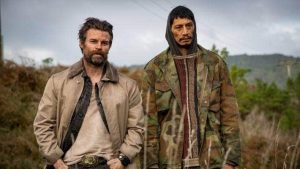
Fan Questions
FN: In December 2020 , you mentioned during an online convention that you were doing a voice-over for an anime. Can you tell us which one?
DG: FreakAngels. It’s kinda good. I’ve seen some of it. It looks cool. It looks like a very Japanese anime. Mark is the name of my character.
FN: You mentioned in other interviews that you also write a lot. What is your process? Do you outline the whole plot before starting or do you tend to free write?
DG: Yeah, I just write. My process is – I just write the next thing that I can see, that feels right. And I usually write with a purpose too. Like I usually write what I want to happen. What would I like to see next? How can I go about doing that? And I just write. I write terribly, I’ll write it horribly with freehand, just pen and ink, or I’ve got the ReMarkable which is like a tablet that you write on, I’ll write that first, everything that I can see, and then I’ll put it on a word processor later and I’ll edit it once it’s in Final Draft. And then I’ll just condense and cut and paste, and make it look like a scene. But in the beginning I just write whatever comes to mind and try to write it as quickly as possible. And then I just edit and re-edit and re-edit the scene until it’s in its purest form, and then I move on to the next scene. And I usually write three or four scenes at once, so that I’m not stuck on one.
FN: Did you learn anything about surgery playing the role of Dr Joel Goran?
DG: Nothing whatsoever. Nothing. The only thing I learned is how skilled those Orthopaedic surgeons are, and how vital they are to humanity, and how absolutely disposable and unnecessary actors are. They should perform a function, they should do something of value, to have real currency. Trust me, I think there’s a real place for art, otherwise I wouldn’t be one, but they seemed like superheroes to me and I learned nothing. I thought that that show made me look fabulous.
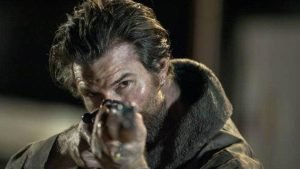
Quick Fire Questions
FN: Texting or Talking?
DG: Talking.
FN: Favourite Day of the Week?
DG: Friday.
FN: Favourite city in the US besides the one you live in?
DG: New York.
FN: Nickname your parents used to call you?
DG: My mother called me Danny, no-one’s ever called me that, apart from my mother.
FN: Favourite Holiday?
DG: Halloween.
FN: How long does it take you to get ready?
DG: I’m ready now..
FN: On a scale of 1-10, how good of a driver are you?
DG: That sounds conceited if I give myself a high mark, but I think I’m reasonably good. I’m quite safe. I’m very safe. You’re forced to become a good driver in Los Angeles because all you do is drive, so you don’t really have a choice. I drive both sides of the road, I drive left hand transmissions, I drive right hand transmissions, I drive Automatic, I drive, they call it Manual in New Zealand but they call it Stick in the States. I drive both those types of cars. To be honest, I think I’m just of an age where I’m a lot more experienced as a driver than people say even five years younger than me.
FN: Favourite Ice Cream flavour?
DG: There’s a specific ice cream store here in Los Angeles called Wanderlust and they make a Japanese Neapolitan Ice Cream.
FN: Pizza or Pasta?
DG: Pasta
FN: Dogs or Cats?
DG: I can’t choose. They’re both awesome.
FN: What’s worse: laundry or dishes?
DG: Laundry.
FN: TV Shows or Movies?
DG: Fargo is one of the best shows I’ve ever seen (Ed: Agreed). Animated series: I love Rick and Morty, South Park and The Simpsons. It’s still so good. So good. And so funny. In terms of shows that I’ve seen that I thought were brilliant. I very rarely love a show completely. I thought White Lotus was really interesting and that the ending was terrible. But it was good, up until a point.
I almost never enjoy TV shows. I want to. However, I think that the epic series by Donald Glover called Atlanta was really original. There was a show on Amazon for a hot second called SMILF, which I thought was really interesting. My favourite TV show is probably Black Mirror. Charlie Brooker, I believe is the show-runner for that, and he’s a wizard. He’s funny. Charlie is the only guy that achieves actual satire I think. He’s funny at the same time as he’s heartbreaking and scary. He’s actually saying something. Most TV shows and most movies say absolutely nothing. And that’s part of the problem with creation by committee.
FN: Cooking or baking?
DG: Cooking.
FN: Writing or painting?
DG: Writing. But painting is the best. But I’m gonna choose writing every time.
FN: Last one – favourite colour?
DG: Blue! But then I like grey too, as you can see (he tugs at his shirt), I like grey, but I like blue too.
A big thank you to Daniel Gillies for answering my questions. There’s quite a lot of us here at FANdemonium Network who are very excited to watch Coming Home In The Dark. If you want to check out Daniel Gillies other projects, Virgin River is available on Netflix and you can watch Occupation: Rainfall on Amazon Prime or Netflix from October 9th onward.
PS: In case you don’t want to miss out on Coming Home In The Dark being added to a festival in your country, check out our article here. This one will be updated as we get more news.
Follow FANdemonium Network Online:
Instagram | Twitter | Facebook
